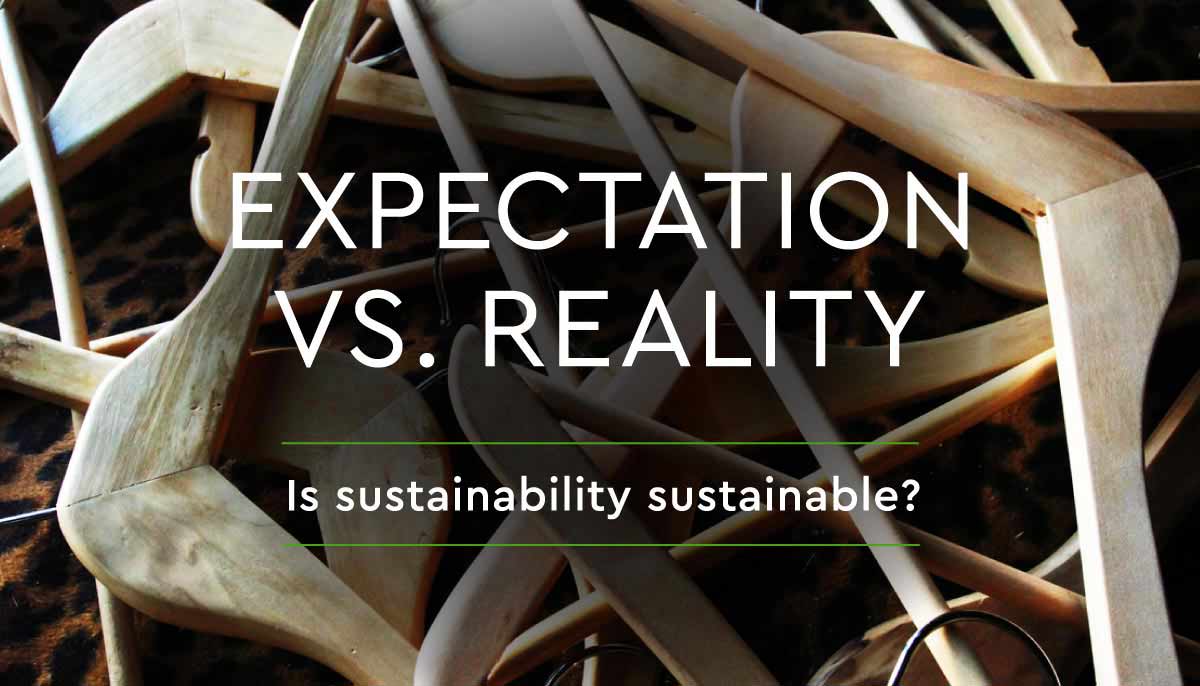
What’s it Going to Take to Make Sustainability Sustainable?
2020 drastically changed the consumer’s shopping experience. More people had already started buying online for convenience and lower prices in previous years, but last year was unique as these drivers were also paired with concern for more mindful spending. More than ever before, environmental and social causes influenced how and why customers bought from certain retailers and measured just how much their ambition to purchase from responsible sellers outweighed other elements such as cost and speed of delivery. This reality has many retailers wondering exactly how to make sustainability sustainable.
Sustainability has been a somewhat difficult issue for brands and retailers to address due to the added costs often involved, but more and more retailers are realizing it is a factor that cannot be ignored. In fact, thriving brands like Patagonia and H&M have made sustainability a central part of their business strategies for years, and it’s paying off.
To better understand what drives today’s purchasing decisions, 4,000 cross-generational consumers and 200 leaders in the retail industry were surveyed to discover what they believe now drives purchasing decisions in this modern, environmentally conscious world.
Cost, Convenience and Choice
According to the survey, 68% of retailers acknowledge that since COVID-19, consumers are more aware of the impact online shopping has on the environment. With this desire to spend more responsibly comes the expectation that retailers will rise to the occasion with offerings like recycled packaging and options to choose a sustainable delivery alternative at check-out.
However, 59% of those surveyed indicate that the primary reason retailers have not embraced sustainability is the expense, specifically the cost associated with offering a choice of delivery and packaging options. It would seem reasonable then that the larger retailers, who can afford to provide more consumer flexibility, are the ones to drive forward these solutions. In comparison, it is estimated that smaller retailers may not be able to fully support these initiatives because it is cost-restrictive. Surprisingly, though, the survey indicated that smaller, independent retailers are believed to be leading the way with genuine sustainability efforts, not the big players in the industry.
Different generations have varying values and expectations as they measure their desire for sustainability against their wallets. Sustainability isn’t free for the consumer either. The retailers that believe the average customer would spend more for environmentally friendly products expect customers to pay a minimum of 18% more. That price increase isn’t always going to be embraced, and retailers should invite consumers into making these decisions. Those who want the best price should have that option, and those who wish to pay more for sustainability should also have that opportunity.
The Rundown on Returns
Customer returns are one of the biggest obstacles when it comes to responsible retail. While many purchasers proclaim that sustainability is important to them, several retailers would disagree when it comes to returns. 46% of retailers surveyed believe shoppers are prone to over-purchase and then send back items (only 26% of consumers agree they exhibit this behavior).
However, some of the responsibility falls on the retailer. In many cases, consumers are encouraged to send back items with promises of free returns, or “try for 30 days” and return it if they don’t like the product. Depending on the industry, some items cannot be resold and are destroyed. Not only has the product been shipped back to the retailer at a high environmental cost, but it is completely wasted as well.
There are ways to combat this practice, including having better product descriptions and product photos, easy-to-find sizing guides, and offering numerous avenues to return items (i.e., return to store, drop-off locations, etc.). Reducing the volume of consumer returns creates an opportunity to enhance sustainability initiatives and improve back-end operations, all of which contribute to a brand’s bottom line.
Retailers Need to Find Balance
For shoppers that struggle between cost and convenience, sustainability is best obtained by offering choices. Those retailers, big or small, that provide options will meet the needs of all types of consumers and not alienate potential purchasers.
Retailers also need to be authentic, transparent and forthcoming about their sustainability initiatives. Those seeking to spend their money with responsible brands will appreciate clear communication and information that they can easily access. There are a number of creative ways to get the word out. For example, including QR-codes on the packaging and linking it to landing pages that detail your initiatives or involving your shoppers in your sustainability community.
Sustainability Doesn’t Have to Be Complicated
Sustainable practices don’t inevitably mean higher costs. A qualified Business Process Outsourcer (BPO) is equipped to handle the needs of both retailers and buyers when it comes to meeting sustainability goals efficiently. BPOs can assist with sustainable packaging solutions from offering alternative shipping options to physical packaging materials, fulfillment and delivery opportunities leveraging carrier relationships, and services that extend product lifecycles in the case of returns. A third-party logistics provider can take on the responsibility of giving your customers the sustainability they desire while increasing your ROI and improving your brand’s reputation.
The fundamentals of consumer behavior still ring true – they want a quality product, helpful digital experience and a friction-free check-out. However, retailers need to work with customers to make sustainability more attainable. These changes don’t need to be overly extensive, but retailers can enhance their brand and build loyalty by providing shoppers a choice to buy responsibly.


